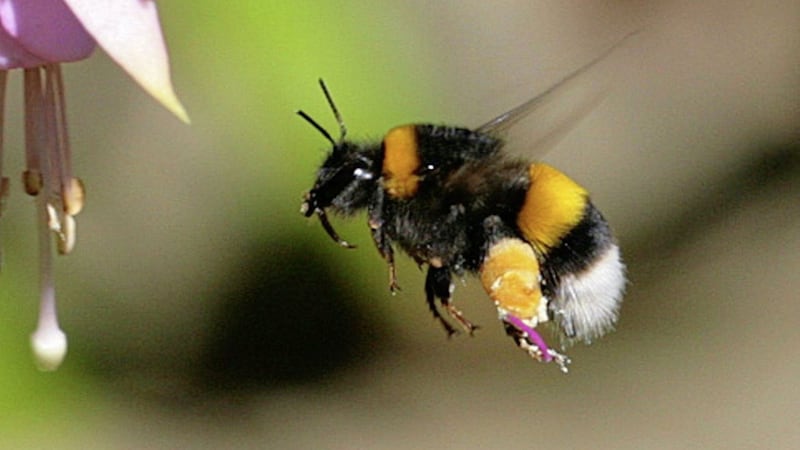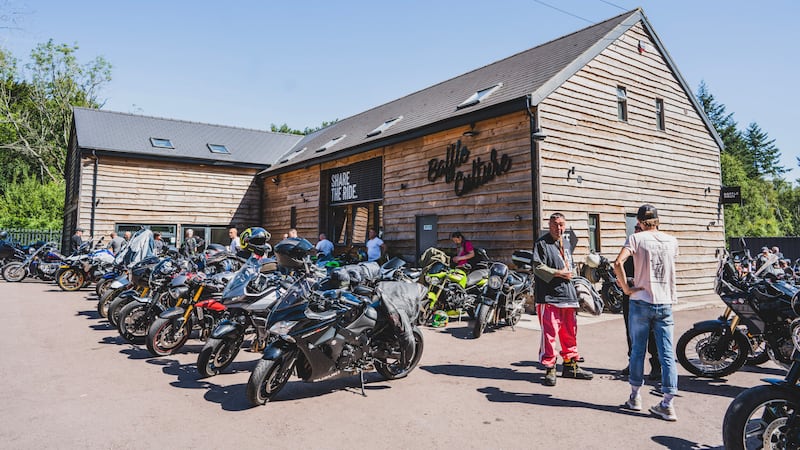IT’S OK if you failed to mark last Tuesday May 22 as World Bee Day. I’m guilty also and it’s fair to assume the world’s bee population was oblivious too.
That’s not to detract from its role in highlighting the plight of the bumblebee and other members of this benign insect family. Across the globe bees are under threat due to a decline in habitats, along with the increased use of pesticides, fungicides and insecticides. Add climate change to this already lethal set of circumstances and you can understand why the bee needs our help.
In Ireland, the situation is as acute as anywhere. A third of Irish bee species are threatened with extinction, with bumblebee populations plummeting year-on-year as hedgerows, ditches and verges are removed, poisoned or cut to within an inch of their lives.
This column has been trying to create a minor buzz about the threat to Ireland’s bee population for a decade or more and in that time there’s definitely been an increased awareness of the bee’s key role in food production and the catastrophic impact its extinction would signal.
Along with birds and the wind, these insects play a vital role in plant fertilisation/reproduction by transferring pollen between flowers of the same species, which if successful leads to seed and fruit production. In Northern Ireland, pollinaters are said to be worth £7 million a year to the apple sector alone. Pollinating can be done artificially through human hand pollination or pollen dusting but it’s much more expensive in an industry where margins are famously tight.
Primarily because of its economic impact, government is starting to take the threat to bees seriously too. Last week at the bigger-and-better-than-ever Balmoral Show, the Northern Ireland Environment Agency (NIEA) was highlighting how farmers – or what the Department of Agriculture, Environment and Rural Affairs press release euphemistically referred to as the “agricultural industry” – can help halt the decline of bees and other pollinating insects.
Pollinators such as honey bees, bumblebees and hoverflies are also vital to the survival of many native plants, the press release noted, while elsewhere extracts read like vintage Casual Gardener: “98 wild Bee species on the island of Ireland – 30 per cent are threatened with extinction”; “Declines in wildflowers are subjecting our pollinators to starvation”; “Our tendency to ‘tidy up’ the landscape rather than allowing wildflowers to grow along roadsides, field margins, and in parks and gardens is playing a big part in reducing resources for our pollinators”; “Pollinators also contribute directly and indirectly to human well-being in other ways – there are known mental health benefits from contact with green spaces which increase with the quality of biodiversity”.
Melina Quinn from NIEA appealed for farmers to “work in tandem with nature” in an effort to protect and enhance of our natural habitats.
“Pollinators such as wild bees and butterflies are a key part of an ecosystem, and an indicator of its overall wellbeing,” she said.
The agency’s efforts to raise awareness of the threat to bees and promote insect-friendly farming practices form part of the All-Ireland Pollinator Plan, a cross-border strategy involving a range of organisations that seeks to address the bees’ decline.
The measures recommended to farmers to enhance the bees’ quality of life also apply to gardeners:
:: maintain native flowering hedgerows;
:: allow wildflowers to grow;
:: provide nesting places for wild bees;
:: minimise artificial fertiliser use and consider sowing clovers; and
:: reduce pesticide inputs.
A selection of flowers that will provide blooms all summer is a great idea, although early spring pollen sources, like bluebells and blossom, are also very important since food can be very scarce at this time of year.








